Pronouncing Rose Class Names
cincy_city_garden
14 years ago
Featured Answer
Sort by:Oldest
Comments (54)
jaxondel
14 years agosammy zone 7 Tulsa
14 years agoRelated Discussions
How do you pronounce Brocéliande?
Comments (3)It's the enchanted place where Merlin was entrapped by Nimue...pronunciation... bro SAY lee ahnd Here is a link that might be useful: Broceliande info...See MoreHow do you pronounce this?
Comments (1)I think it is french for twilight. Try kre pus kyoo. That should be close enough....See MoreWhich rose class do you have the most of?
Comments (16)My rose list (badly) needs updating. At a guess I would say that my single biggest group are the Gallicas, possibly followed by Teas. I haven't got my ground in good enough shape for the latter to do well, but the once-blooming old roses of European origin are the best suited to our conditions, and of those the Gallicas are the largest class. So I have a lot of once-blooming old roses (Gallicas, Damasks, Albas, Centifolias, Mosses), which I love and which do well here, a lot of Teas and also Chinas, which I'm working to make the environment friendlier for, mainly lightening the soil. Quite a few ramblers, Multiflora, Wichuriana, species and hybrids, Noisettes, Lady Banks roses. A few 'Mlle. Cecile Brunner'-type old Polyanthas, a few Foetidas, and I wish I had more of both. Rugosas don't like it here, and I have my doubts about Spinosissimas; few HTs, no Floribundas, not because I reject them out of hand, but because I think conditions here aren't ready for them. Oh, I forgot: Bourbons, Hybrid Perpetuals, Hybrid Damasks. I have a few of the first, more of the second, and I like the HDs. These are heterogenous groups I don't know that much about, but there are some I like and I'm trying to figure out which ones. I have many of the Pemberton Hybrid Musks, which I love but don't grow well, and a few shrub roses, a group I don't know much about and haven't seen much of that was inspiring. Oh: practically no Austins. They're beautiful roses but it's too rough here for them....See MoreDishes you love to eat and/or love to make but can't pronounce
Comments (54)Lars reminds me of when the announcers in Montreal would “correct” Jim Lefebvre's name. He says the Americanized “Leh-FEE-ver”. It's his name. One assumes that no matter the origin, the man knows how to say his own name. Re Jaques, I'd be glad to try to repeat your family's pronunciation, but I don't get your examples. M. Pepin says his name the way I'm used to hearing it in French. While I've heard Americans and Brits say a variety of things from Jack with a hard J, like Jack Warner, to something more or less like Pepin's but with the “a” voiced longer, I don't get the vowel from Jack vs. the vowel from Jock. M. Pepin uses a reduced vowel, like an "uh”. What I here most here is an "ah” sound, like in “father”. I have heard French speakers saying what is notated as æ, which is the vowel in cat. Other French speakers say it with an ah sound. The issue then is what happens when the speaker gives extra personality to the “uh” sound. That's where accents come in. There are more than half a dozen ways of saying this kind of an “a”, and as Cloudy Christine was saying, how you interpret that depends on what sounds you can differentiate. You can teach these coloration differences to adults—that's what dialect coaches do—but close enough is all most people can manage. I wouldn't get hung up on a vowel....See Morerosefolly
14 years agowindeaux
14 years agojerijen
14 years agosammy zone 7 Tulsa
14 years agojbfoodie
14 years agocincy_city_garden
14 years agopgraveolens
14 years agojaxondel
14 years agosammy zone 7 Tulsa
14 years agoduchesse_nalabama
14 years agopgraveolens
14 years agocemeteryrose
14 years agomariannese
14 years agojbfoodie
14 years agojerijen
14 years agopatriciae_gw
14 years agopeachiekean
14 years agojerijen
14 years agomariannese
14 years agomelissa_thefarm
14 years agosammy zone 7 Tulsa
14 years agopeachiekean
14 years agoluvaduck
14 years agobuford
14 years agoduchesse_nalabama
14 years agosammy zone 7 Tulsa
14 years agowindeaux
14 years agoduchesse_nalabama
14 years agotrue_blue
8 years agolast modified: 8 years agoUser
8 years agoAquaEyes 7a NJ
8 years agolast modified: 8 years agoAquaEyes 7a NJ
8 years agolast modified: 8 years agoSylviaWW 9a Hot dry SoCal
8 years agoVicissitudezz
8 years agonikthegreek
8 years agolast modified: 8 years agomariannese
8 years agoUser
8 years agotrue_blue
8 years agotrue_blue
8 years agoUser
8 years agotrue_blue
8 years agoVicissitudezz
8 years agotrue_blue
8 years agomariannese
8 years agoseil zone 6b MI
8 years agosammy zone 7 Tulsa
8 years agotoolbelt68
8 years ago
Related Stories
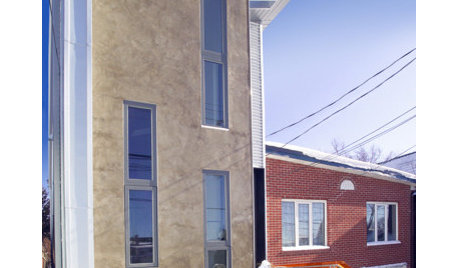
ARCHITECTUREHomes Play the Name Game
What's in a name? These homes convey personality, philosophy and description, whether dubbed by the architects or the clients themselves
Full Story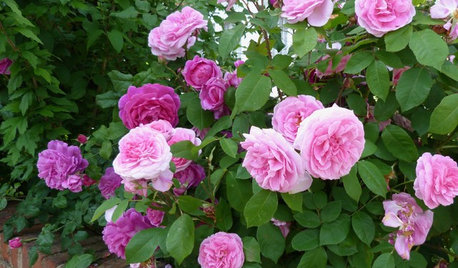
GARDENING GUIDESWhat Kind of Roses Should You Grow?
Want to add the beauty of roses to your garden? Find out which ones, from old-fashioned to modern, are right for you
Full Story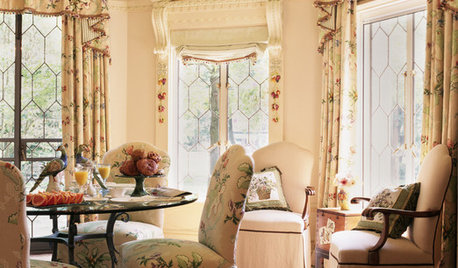
DECORATING STYLES18 Ways to Bring English Country Charm Home
From topiaries and climbing roses to toile and tea, these design ideas can skew cozy casual or manor formal
Full Story
LANDSCAPE DESIGNElements of Modernist Landscapes, Classic and New
Can a garden be modernist without the lawn and glass-walled views from indoors? See which midcentury principles still work for today
Full Story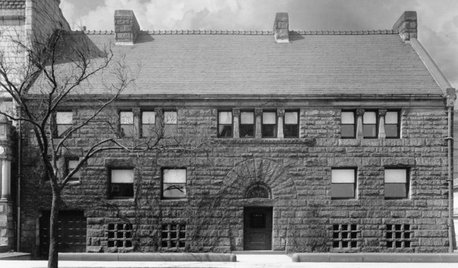
HISTORIC HOMES19th-Century Gem: The Glessner House Bucks Tradition
Shunning Victorian frills, this 17,000-square foot home celebrates stone, wood and idiosyncrasy
Full Story
DESIGNER SHOWCASESSan Francisco Decorator Showcase: Happy Days Are Here Again
Creative ideas, bold colors and inventive materials abound under one (very large) roof
Full Story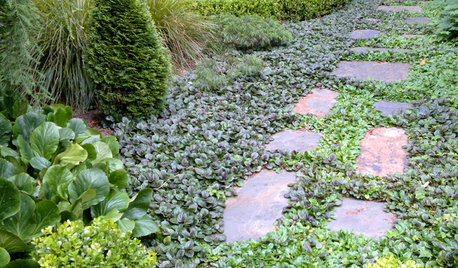
GROUND COVERSGround Force: 10 Top Ground Covers for Your Garden
Protect your soil from weeds and drought this summer with a living mulch of ground covers
Full Story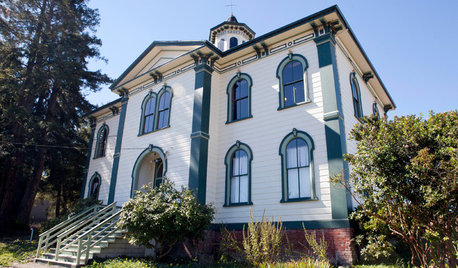
HISTORIC HOMESHouzz Tour: Meet the Schoolhouse Saved By ‘The Birds’
Once featured in Hitchcock’s feathery film, this schoolhouse has stood the test of time
Full Story
DREAM SPACESDream Tile, Sensational Style
From intricate mosaics to large-scale porcelain, splurgeworthy tiles create a luxurious air in the bath and beyond
Full Story





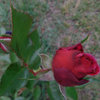
nikthegreek